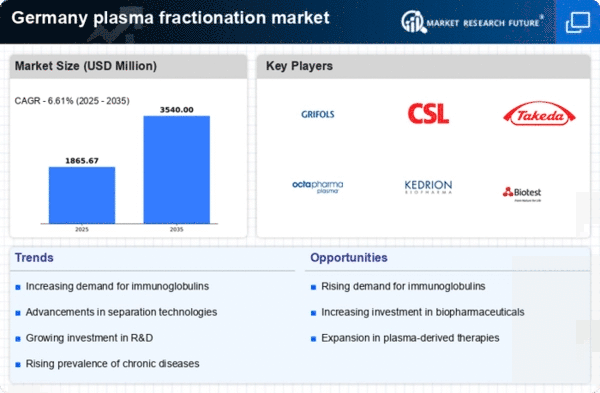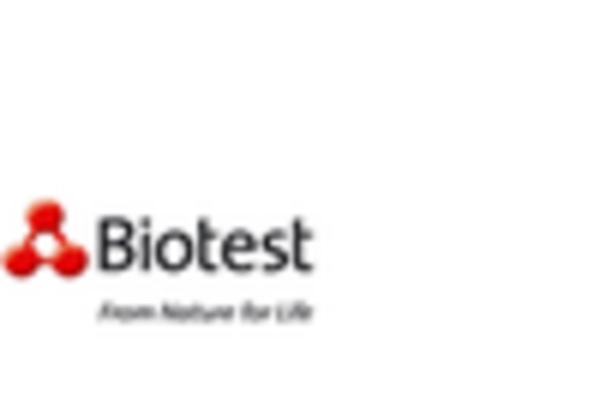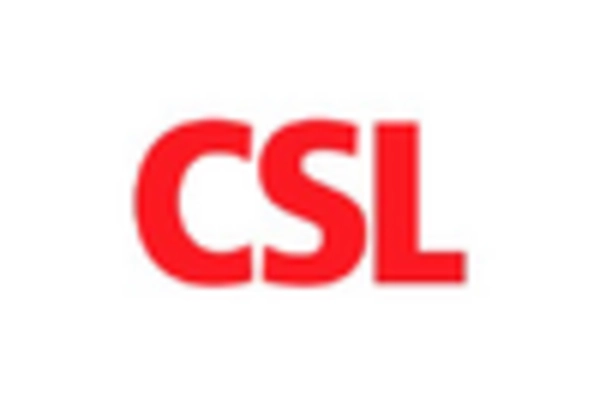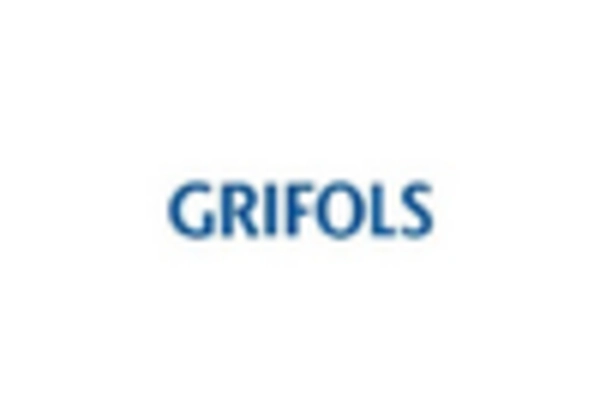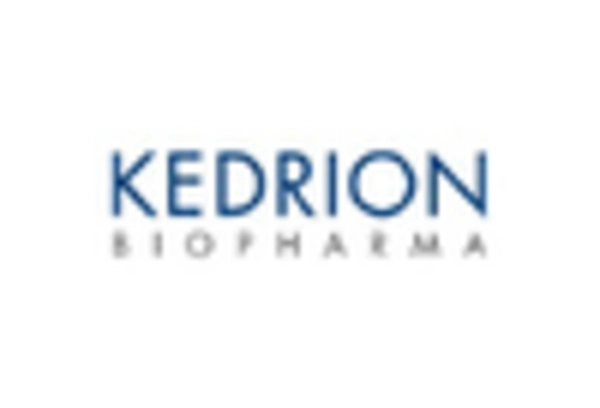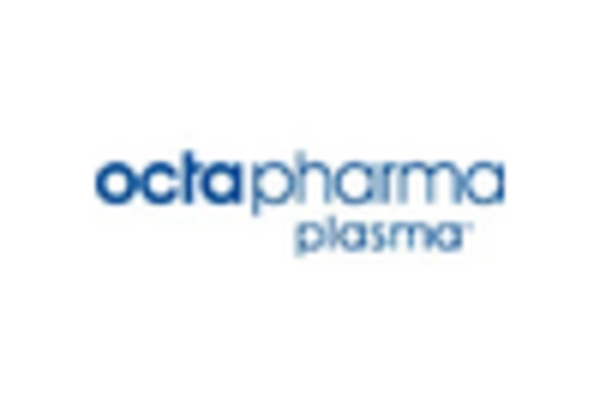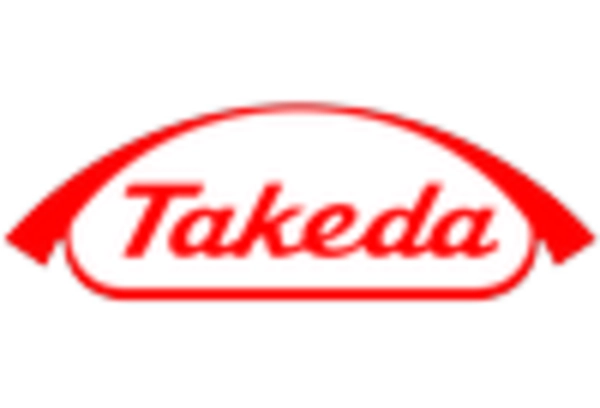Increasing Healthcare Expenditure
The rising healthcare expenditure in Germany is a pivotal driver for the plasma fractionation market. As the government and private sectors allocate more funds towards healthcare, the demand for advanced medical treatments, including those derived from plasma, is likely to increase. In 2024, healthcare spending in Germany reached approximately €450 billion, reflecting a growth of around 4% from the previous year. This trend suggests that more resources will be available for innovative therapies, thereby enhancing the market for plasma-derived products. The plasma fractionation market stands to benefit from this increased investment, as hospitals and clinics seek to incorporate cutting-edge treatments into their offerings, ultimately improving patient outcomes.
Regulatory Support for Plasma Products
The regulatory environment in Germany is becoming increasingly supportive of the plasma fractionation market. Recent initiatives by health authorities aim to streamline the approval processes for plasma-derived therapies, which may encourage more companies to invest in this sector. The plasma fractionation market is likely to benefit from these regulatory changes, as they can lead to faster market entry for new products. Additionally, the establishment of clear guidelines for safety and efficacy can enhance consumer confidence, further driving demand. This supportive regulatory framework may also attract foreign investments, contributing to the overall growth of the market.
Advancements in Fractionation Technologies
Technological advancements in plasma fractionation processes are significantly influencing the market landscape in Germany. Innovations such as improved separation techniques and automation are enhancing the efficiency and yield of plasma-derived products. For instance, the introduction of new filtration methods has been shown to increase the purity of immunoglobulins, a key product in the plasma fractionation market. As these technologies evolve, they not only reduce production costs but also improve the overall quality of plasma products. This could lead to a competitive advantage for manufacturers who adopt these advancements, potentially increasing their market share and profitability.
Rising Incidence of Hematological Disorders
The increasing incidence of hematological disorders in Germany is a critical driver for the plasma fractionation market. Conditions such as hemophilia and other blood-related disorders require ongoing treatment with plasma-derived products. According to recent statistics, the prevalence of hemophilia in Germany is estimated to be around 1 in 10,000 males, indicating a substantial patient population reliant on these therapies. The plasma fractionation market is poised to expand as healthcare providers seek to meet the needs of this growing demographic. As awareness and diagnosis of these disorders improve, the demand for effective plasma therapies is expected to rise, further propelling market growth.
Growing Awareness of Plasma-Derived Therapies
There is a notable increase in awareness regarding the benefits of plasma-derived therapies among healthcare professionals and patients in Germany. This heightened awareness is likely to drive demand for plasma fractionation products, as more individuals seek treatments for various conditions, including immune deficiencies and bleeding disorders. The plasma fractionation market is expected to see a surge in interest, particularly as educational initiatives and marketing campaigns highlight the efficacy of these therapies. Furthermore, the prevalence of chronic diseases is on the rise, which may further fuel the demand for plasma-derived therapies, thereby expanding the market's reach and potential.


